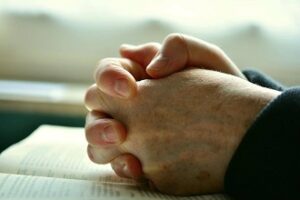
Theocide and the community of the elect
We have already conceptualized in another post the Thocide in a line of dialogue with Peter Sloterdijk’s The Post-God, we conceptualized this rereading, in a certain way also of Nietzsche, as an attempt to kill it, because if it doesn’t exist, you can’t kill what you don’t exists and if it exists it is immortal so we can just erase it from our mind temporarily.
Peter Sloterdijk’s The Post-God, we conceptualized this rereading, in a certain way also of Nietzsche, as an attempt to kill it, because if it doesn’t exist, you can’t kill what you don’t exists and if it exists it is immortal so we can just erase it from our mind temporarily.
But the reaction to the Hegelian Theocide, that of Feuerbach, in which God only exists in the mind and thus is an ideal thought something and only with idealist “transcendence” do we reach it, there is the religious reaction of closing in on the “community of the elect”, the favorites of God, those chosen by criteria that a certain community determines and the rest are lepers, public sinners and unworthy of the “kingdom”.
We have already made a long journey on the issue of error, part of human reality, and whose reading can be concluded in the biblical passage that says that the doctor should go to the sick and not to the healthy.
In a way, the reaction to this elevated God, distant from the “all powerful” men, is nothing more than a mundane and temporary power and a form of despiritualized asceticism, the life of “exercise” as advocated by Peter Sloterdijk.
Founded on perfectionism and extreme moralism, morality is important and should not be denied, however, taken to the extreme, it makes the “addiction” much closer and liable to fall into it, that is, they are actually false moralists because they cannot to put into practice what they defend, and it is often these false exercises that lead to a practice of deviations and moral aberrations.
The union of these concepts with politics leads to an unsustainable form of political moralism, it is not about defending theft or corruption, but understanding that a balance is needed, for example, politicians must want benefits for their region, the its electoral base and local economic strength.
Everything has to be thought of in a balanced way, another example is the size of the state, the big state is a pachyderm, the minimal state is incapable of executing necessary public policies.
What is then, in fact, religiosity or spirituality, difficult to find in modernity, the balance between social practices that must have doses of fraternity and spiritual practices that must have doses of true asceticism and that is a reflection of what is lived in life ” mundane”.
Man thirsts for true justice, true spirituality and is fed up with hypocrisy.









